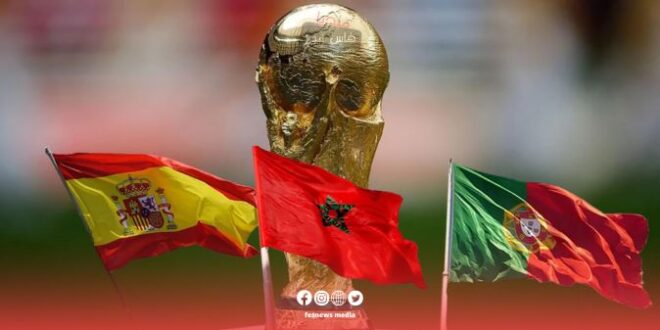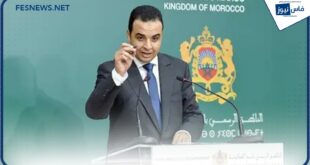The collaboration between Morocco, Spain, and Portugal to host the 2030 World Cup is a distinguished model of joint organization between three countries with deep historical and cultural ties. This initiative, a significant step in international football, is part of joint efforts to strengthen sports cooperation among these nations, while providing a unique opportunity to host a major sporting event that reflects the cultural and sporting diversity of these countries.
Shared History and Cultural Ties
The cooperation between Morocco, Spain, and Portugal is rooted in the historical, geographical, and cultural connections between these countries. Despite the geographical differences, cultural and social interactions between Morocco, Spain, and Portugal have always been prominent. Organizing the World Cup together reflects their desire to enhance these ties and is seen as an important step toward strengthening mutual understanding and expanding cooperation among Mediterranean nations.
The Importance of Joint Organization
Hosting the 2030 World Cup by three countries is a first in the tournament’s history, showcasing the ability to coordinate across continents—Africa and Europe. With Morocco, the first African country to join this partnership, it adds a significant dimension to Africa’s chances of hosting large international sporting events. Furthermore, the coordination between the three countries will ensure excellent infrastructure, including stadiums, hotels, and modern transport systems, which enhances the chances of a successful tournament.
Challenges in Joint Cooperation
Despite the numerous benefits of this joint cooperation, there are several challenges that the three countries may face on the road to organizing the 2030 World Cup. One of the main challenges is logistical coordination between three countries with different geography and climates, as well as the diversity in infrastructure, such as stadiums and sports facilities. It will be essential to activate cooperation between governments and sports bodies in these countries to unify efforts and ensure that the facilities meet international standards.
Economic and Social Impact
Economically, hosting the 2030 World Cup is a golden opportunity for countries like Morocco, Spain, and Portugal. The event could boost international tourism, attract foreign investments, and open new job markets across various sectors. In Morocco, the tournament is expected to contribute to the development of infrastructure and improve local sectors such as tourism, transportation, and hospitality, while also offering a chance to enhance the country’s sports sector. Spain and Portugal, with their vast experience in hosting major tournaments, will also benefit from this collaboration.
Climate Challenges and Sustainability
A key focus of the 2030 World Cup will be environmental sustainability and addressing climate challenges. The three countries are committed to offering an environmentally friendly model, improving the use of renewable energy and sustainable building techniques in the construction of stadiums and associated facilities. This initiative is part of the “green sports” policy that aims to minimize the environmental impact of large-scale sporting events.
Future Prospects: Continental and Global Support
The joint organization of the 2030 World Cup is expected to be a pivotal starting point for supporting football in the region, both in Morocco and across the African continent. The Moroccan-Spanish-Portuguese cooperation reflects a determination to present global football in a new and more diverse form. This initiative may increase the chances of African nations hosting more major sports tournaments in the future, contributing to enhancing the continent’s image on the global sports stage.
Conclusion
The cooperation between Morocco, Spain, and Portugal to host the 2030 World Cup is a bold and significant step on multiple fronts. Through this alliance, the three countries will set a model for how sports cooperation can be enhanced between nations, with an emphasis on sustainability and cultural diversity. Hosting the 2030 World Cup will be a major global sporting event that strengthens these countries’ positions in the world of sports and leaves a lasting legacy for future generations.
Source: Fes News Media
 فاس نيوز ميديا جريدة الكترونية جهوية تعنى بشؤون و أخبار جهة فاس مكناس – متجددة على مدار الساعة
فاس نيوز ميديا جريدة الكترونية جهوية تعنى بشؤون و أخبار جهة فاس مكناس – متجددة على مدار الساعة













